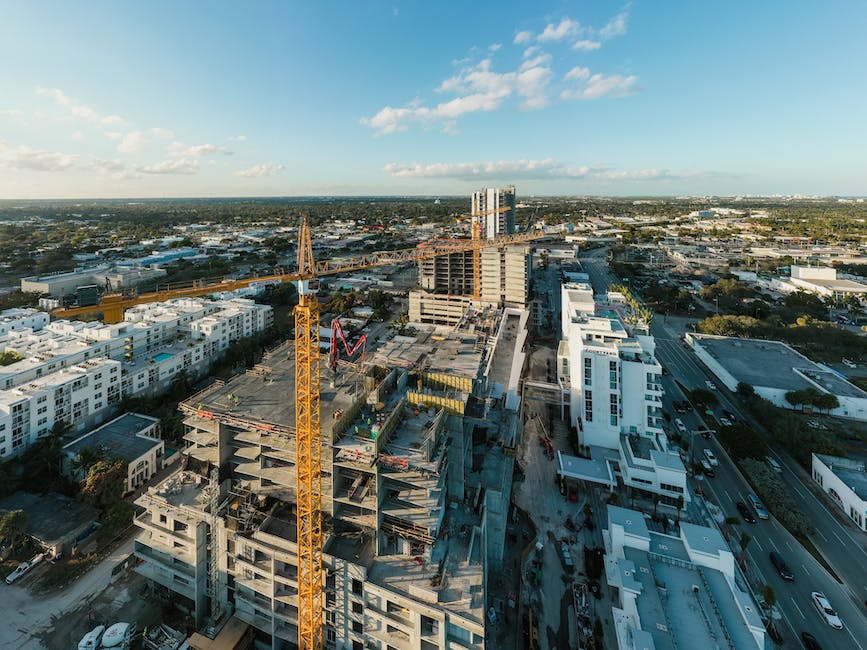
When a client or entity requests due diligence in a commercial real estate transaction, that due diligence typically refers to identifying and negotiating with appropriate third parties to purchase or sell a specific unit or units in a property.
It can also include identifying alternative uses for property, finding investors to finance the property, and investigating possible improvements to the property. Due diligence is always an ongoing process that occurs frequently over the life of the business as well as when a property is purchased.
When it comes to due diligence in commercial real estate transactions, there are several points that typically come into play. These include: identifying potential owners and what kind of ownership structure they want; determining who will be responsible for any necessary financials during an ownership transition; exploring possible partners or joint ownerships; and investigating potential agreements with tenants or third parties to maintain the property in its current state.
There are many different types of due diligence, so it is important to learn what each one refers to. This article will talk about newcomblication of due diligence in commercial real estate transactions.
Risks and rewards of commercial real estate transactions
When a new development or office space is required to meet corporate requirements or customer needs, it can be valuable to have additional space.
However, there are some risks and benefits to every transaction. As the owner of a property, you should consider how your property fits into the company’s strategy and what benefits they will offer their clients.
As a trading house, you should consider if your property is suitable for its business style and if it is a good fit for someone else’s business. If one is not suited, then there are chances that the right person could be interested in changing style or finsing a match between them.
Organization of a commercial real estate transaction

When a client or entity seeks to acquire real estate for commercial use, they will typically undergo a number of steps to help them make their decision on property.
These steps can include visiting the property in question, meeting the owners, speaking with potential tenants, and ultimately signing a lease. At this point, the owner creates a legal document titled an offer and an agreement.
The offer contains information about the property such as what it is worth and how much they want for it. The agreement may contain terms such as who will pay what amounts in rent, how long the rental will last, and any conditions that must be met.
At this point, the owner can either accept or decline the offer. If they decline it, then another person or party turns into an offer and accepts It then turns into a contract between them and the property.
Understanding the organization of the transaction

When a client and Realtor.com team agree on terms for a commercial real estate transaction, the two parties form an organization called a transaction group. This group works together to ensure their interests are met during the transaction process.
The organization can be difficult to understand at first, but soon you will see why it is so important. By joining together in this way, the client and Realtor.com team create a shared identity that increases trust and communication between them.
There are five key components to the due diligence process in a commercial real estate transaction: searching for properties, viewing properties, contacting owners/operators about potential uses, visiting sites for reviews, and researching potential uses for each property.
Knowing what each does and what it could mean for your property is crucial in leading a due diligence session.
Know your buyer(s)

During the due diligence process, a buyer and a seller attempts to understand each other’s business experience and skill set. This process can be difficult for small businesses that, for example, do not have formal business documents or records.
If you are buying a business, you are trying to find a fit with regards to experience, fit for business, and fit for business address. If the address is different from the company’s headquarters, then this would be considered a difference in residence.
To qualify as a due diligence buyer on an entity, you must provide proof of previous involvement in the transaction such as being involved in buying or selling before you. A due diligence seller must prove they have researched potential buyers and their qualifications before agreeing to purchase an asset.
Know your seller(s)

Before you agree to any terms with the seller, you should know what those terms are. This includes whether or not the seller will accept a lower value for the property, whether or not there is a warranty against damage to the property, and whether or not the property is handicap-accessible.
If the property appears to be worth more than what the buyer is paying, then there may be a reason for this. A low-value property may not receive as much attention as a more expensive one, which might earn it a higher price.
It may also protect you in case something happens to the buyer, such as them moving out of town and leaving the property uninhabitable. If anything damages the property but was preventable, then there is no liability involved.
There may be special requirements for financing properties, so before signing any documents with your buyer, ask about these.
Understand the contract documents

A solid understanding of the contract documents that govern a commercial real estate transaction can save you a lot of time and grief.
Most contracts have rules and limitations that govern them. For example, in the contract governing a commercial property, there may be restrictions on who can buy and who can sell in the property.
As important as these rules and limitations are, you should always keep the flexibility to change or add to them in cases where something changes or changes. For example, when buying a property, you should keep in mind that you are bound by certain things such as mortgage debt, insurance obligations, vacancies requirements, etc.
These things may come into play when a seller is trying to get as much money as possible from the buyer before they leave. As tough as it can be to stay objective when one is dealing with these types of sellers, it is important to do so.
Review property records

Creating a due diligence account is an important part of the process. This account can be created anywhere, it is not necessary to create one at a real estate transaction, but it can help identify properties that may seem like a good match at first glance.
It is also possible to create a due diligence account within your own business should you need to verify ownership or control of a property during the due diligence process.
To create an account, visit ncaa.org and click on “Accounts” under the “Home & Community” tab. Then select “Create New Account” and fill out the rest of the form. Once you do this, your new account will be active and you can start checking properties against your list of concerns.
Inspect the property

Once an offer is accepted, it is time to inspect the property. During this inspection, you must be careful. If a condition cited in the offer is discovered during the inspection, acceptance of the offer may be delayed or rescinded.
If a condition cited in the offer is identified during another site visit, then this second visit must be confirmed by the owner via written agreement or personal notification. This second confirmation may be obtained through talking to staff at the building association, attending a show or event held by the business, or even having them come out to your home!
It is important to note that if a condition cited in the offer can not be resolved through reasonable dialogue and/or writing agreements, then it may require additional due diligence.

